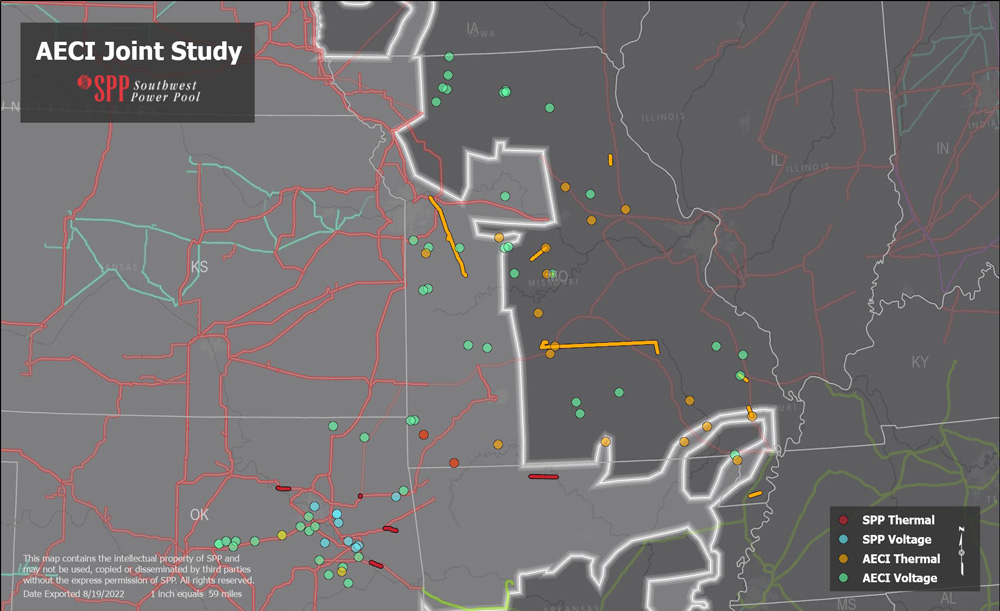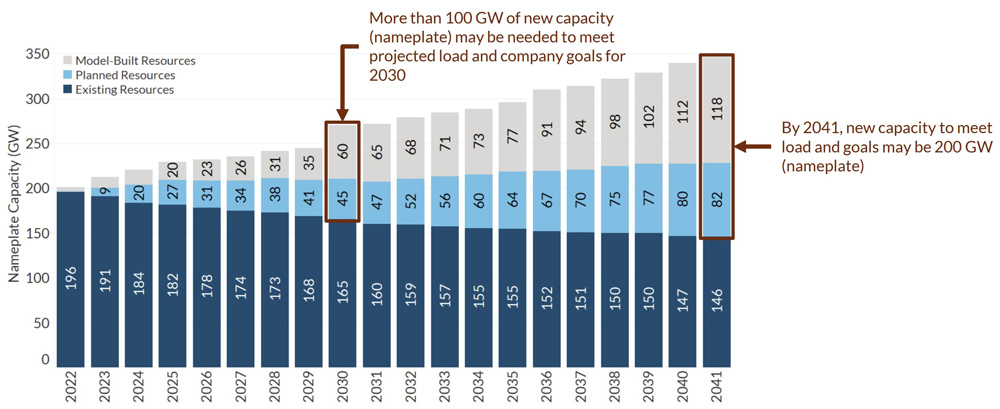New Jersey’s Board of Public Utilities (BPU) earlier this month denied requests by 15 solar developers seeking to extend the completion deadlines for 37 projects.
While the board at its regular meeting Aug. 17 also granted extensions for hundreds of other projects, members expressed reluctance over the denials, as the state faces its own deadline crunch on its renewable energy goals and developers face financial uncertainty and supply chain challenges.
The series of decisions affect participants in the state’s temporary Transition Incentive (TI) program. Now closed to new projects, it provided incentives of between $91.20 and $152/MWh. Projects that aren’t finished by the deadline — initially a year from the project approval — and do not receive an extension would lose the incentive and have to apply to the less lucrative program that succeeded TI.
The BPU said the 15 developers had failed to show sufficient evidence that delays to their projects’ construction were caused by events beyond their control. At the same time, it approved a six-month deadline extension for hundreds of public entities, including schools, universities and municipalities. And the board granted a deadline extension of up to a year for 30 projects planned on a landfill, brownfield or area of historic fill.
The board also approved a six-month extension for four projects approved for TI benefits as part of the state’s community solar program, but it denied an extension to five other projects in the program, saying they were too far from completion.
Providing Certainty
Outlining the decisions at the meeting, Scott Hunter, manager of the BPU’s Office of Clean Energy, said they were aimed at “providing clarity, certainty and support” for solar projects while limiting the cost to ratepayers of extending the deadline and allowing projects that miss their deadline to remain in a higher incentive program.
BPU President Joseph Fiordaliso told the board that the votes demonstrate “the desire of this board to work with the solar industry” while reducing the burden on ratepayers.
The BPU created the TI program to help reshape the state’s incentive programs away from the Solar Renewable Energy Certificate (SREC) Program, which dispensed incentives of about $250/MWh for more than a decade until it closed in April 2020. With incentives about half the size of the SRECs, TI followed in May 2020 but was closed soon after the BPU in July 2022 approved the permanent Successor Solar Incentive Program, with incentives between $70 and $100/MWh.
The shift stemmed from a 2018 state law that directed the BPU to close the SREC program once it reached 5.1% of the power sold. That happened on April 30, 2020. (See Solar Subsidy Program Ending in New Jersey.)
BPU data for the first half of 2022 show the state is on track to meet a 2025 goal of 5.2 GW of capacity set out in the state Energy Master Plan but needs a dramatic increase in annual capacity installed to meet goals of 12.2 GW in 2030 and 17.2 GW in 2035. (See NJ Faces Challenges as Solar Sector Hits 4 GW.)
Mixed Bag
Fiordaliso said that the state has cultivated and supported the solar industry for 20 years, and the decision to grant only certain extensions reflected that strategy of reducing financial support.
“The industry knew that eventually they were going to get closer to standing on their own two feet,” he said. “We did nothing in secret. We did it in conjunction with the stakeholders. And I think the state of New Jersey has thrived. I think the developers have thrived. And if we continue to work together, we will continue to maintain the solar industry as a major industry here in the state of New Jersey.”
The board voted 4-0 on the extensions, with one abstention. Commissioner Zenon Christodoulou, who joined the board on Aug. 15, didn’t vote in the meeting because he felt that he needed more time to study the issues.
Commissioner Bob Gordon said that any government support for an industry “needs to balance the goals of advancing the new industry against the cost impact.”
“At some point, you need to cut back on those incentives,” he said. “When that industry grows up, if you don’t do that, the risk is the ratepayers subsidize inefficiency. And that’s not what we want to do.”
Scott Elias, manager of Mid-Atlantic state affairs for the Solar Energy Industries Association (SEIA), called the board’s votes a “mixed bag for the industry.”
“It is our opinion that an orderly transition from the Transition Incentive program to Solar Successor Incentive Program ought to recognize that industry is not immune to COVID-19 or global economic trends that leave customers navigating a supply chain riddled with bottlenecks and delays,” he said.
“It’s great that the BPU made limited extensions for some community solar projects and projects serving public entities,” he said. “But markets cannot efficiently operate when power purchase agreements need to be retroactively renegotiated because projects literally can’t be built, interconnected and operating in a narrow 12-month timeline due to unavoidable delays caused by the COVID-19 pandemic.”
Elias also said the extensions for the 30 brownfield projects “will not address the PJM interconnection delays associated with every [brownfield] project that followed the rules and applied before the closure of the TI program in August of 2021.”
“Put simply, the order insufficiently addresses all of the concerns that led to the introduction and passage of A4089,” a bill that would automatically extend the completion date for brownfield solar projects that cannot be completed because of interconnection problems caused by PJM or a utility. The General Assembly passed it unanimously in June, but the Senate has not acted on it. Another trade group, NJ Utility Scale Solar, has backed the legislation and called for a “blanket” deadline extension for TI projects.
Deadline Extension Guidelines
BPU officials gave varying reasons for the extension denials or approvals.
The rejected 37 projects were “not mature enough to meet TI deadlines,” the BPU said in its order. The projects all filed their application shortly before the TI program was closed and cited supply chain difficulties as preventing completion. But developers “knew, or should have known, that they were not going to be able to complete their projects within the time frames enumerated in the TI rules,” the BPU said.
The board noted that in June, it granted a request by ESNJ-Key-Gibbstown to extend the deadline on a 1.38-MW carport solar project in Gibbstown. The board had already granted the project two deadline extensions, and the developer — faced with an April 30 deadline by which to show project completion — sought an additional extension of three months.
The developer argued that it had completed the project but could not interconnect it because Atlantic City Electric had not performed the necessary transmission upgrades.
In granting Gibbstown the extension, the BPU laid out general guidelines on when it would be appropriate to override TI project rules. One of them requires the project to show that the project was electrically and mechanical complete before the deadline expired and had received the necessary final inspections. They also require that the developer show that the utility had committed in advance to completing any upgrades needed to interconnect the project by the deadline but, “despite the developer’s best efforts, the estimated upgrade completion date was unilaterally extended by the” utility.
The 37 projects denied an extension did not demonstrate those conditions, the BPU said.


